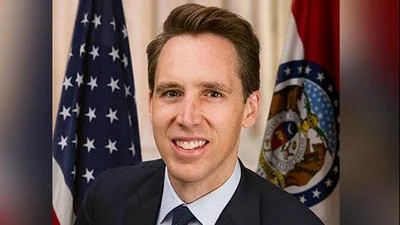Rep. Jason T. Smith, U.S. Representative for Missouri's 8th District | Official Website
Rep. Jason T. Smith, U.S. Representative for Missouri's 8th District | Official Website
Ways and Means Committee Tax Teams’ members concluded the August district work period by continuing events across the United States. In total, the Tax Teams have held over 90 events across 17 states to hear first-hand the consequences of the Biden-Harris $7 trillion planned tax hike, including the expiration of the Trump tax cuts, and how Congress can implement pro-growth tax policies that will help American families, small businesses, farmers, and manufacturers succeed.
The American Manufacturing Tax Team, led by Rep. Vern Buchanan (FL-16), visited two auto part and technology manufacturers in Detroit, Michigan to understand how U.S. tax policy impacts manufacturers' global competitiveness. Members joining Rep. Buchanan included Ways and Means Committee member Rep. Kevin Hern (OK-01), as well as Reps. Rudy Yakym (IN-02), Mike Collins (GA-10), and Victoria Spartz (IN-05).
The Main Street Tax Team, led by Rep. Lloyd Smucker (PA-11) and joined by Reps. Kevin Hern (OK-01), Ron Estes (KS-04), and Greg Murphy (NC-03), met with small business leaders to discuss the importance of the Section 199A 20 percent small business deduction set to expire next year. The group reviewed a study indicating that the 199A deduction supports 2.6 million jobs, contributes $161 billion to employee compensation, and adds $325 billion to U.S. GDP.
U.S. Innovation Tax Team Chair Rep. Ron Estes (KS-04) met with Harper Industries in Kansas to address challenges faced since the expiration of immediate expensing for research and development expenses. Rep. Estes highlighted efforts by the Ways and Means Committee to restore R&D expensing through legislation passed in the U.S. House.
Global Competitiveness Tax Team Chair Rep. Kevin Hern (OK-01), joined by Reps. Ron Estes (KS-04), Carol Miller (WV-01), Randy Feenstra (IA-04), and Blake Moore (UT-01), hosted stakeholders from the U.S. energy industry on Capitol Hill to discuss international tax issues affecting energy producers. The group examined ways Congress can build on Trump-era tax cuts to enhance productivity, global competitiveness, and reduce energy costs under current administration policies.




 Alerts Sign-up
Alerts Sign-up